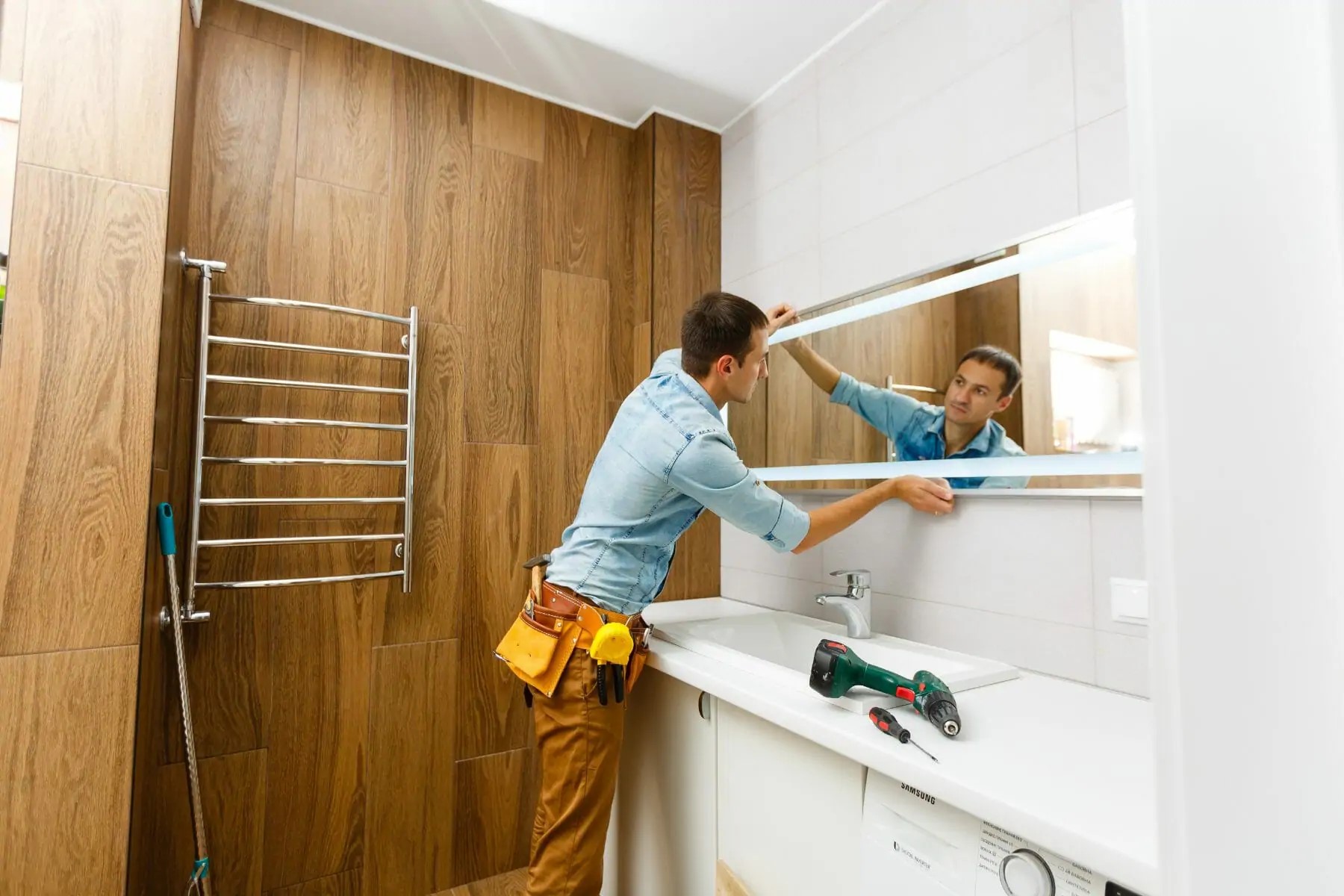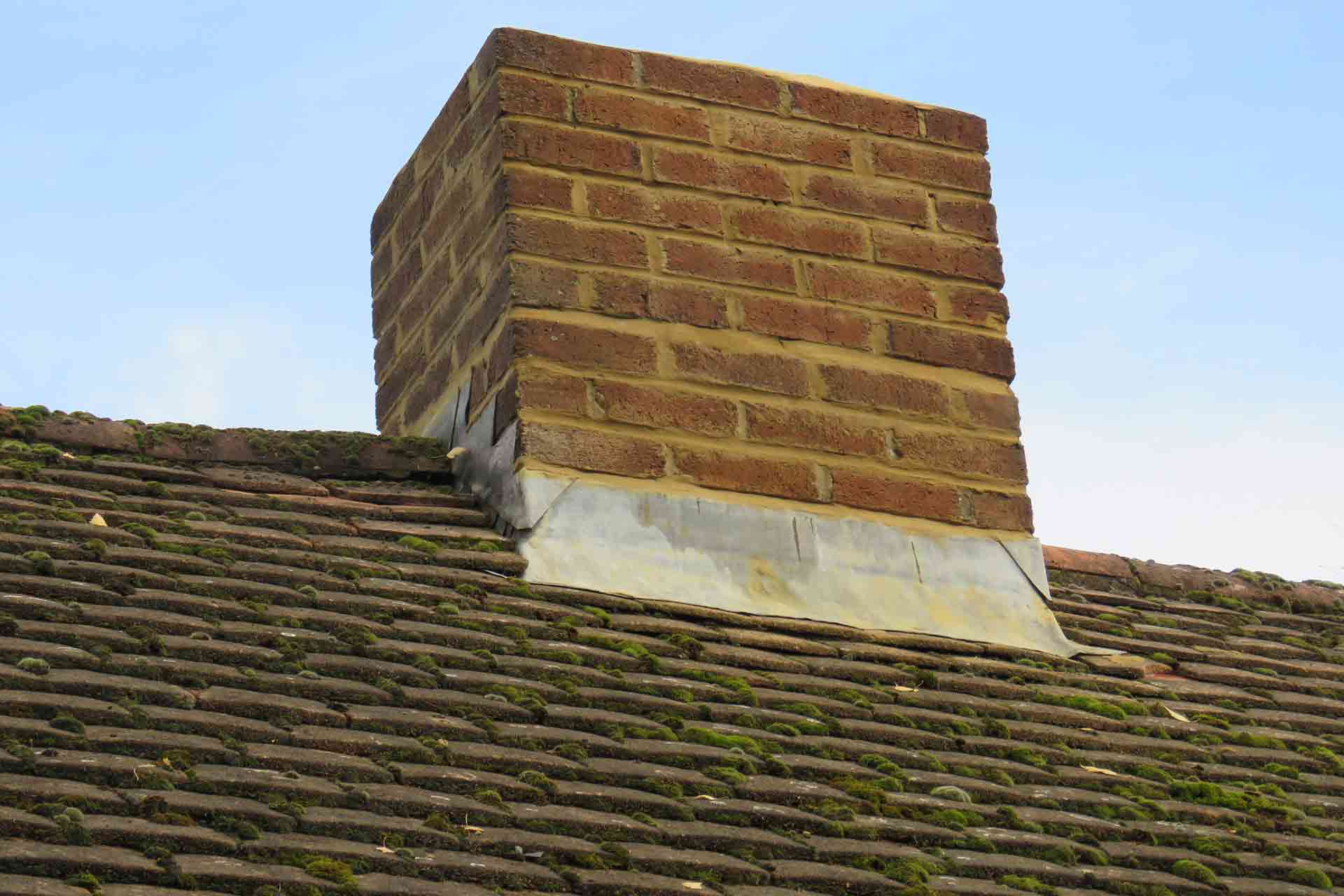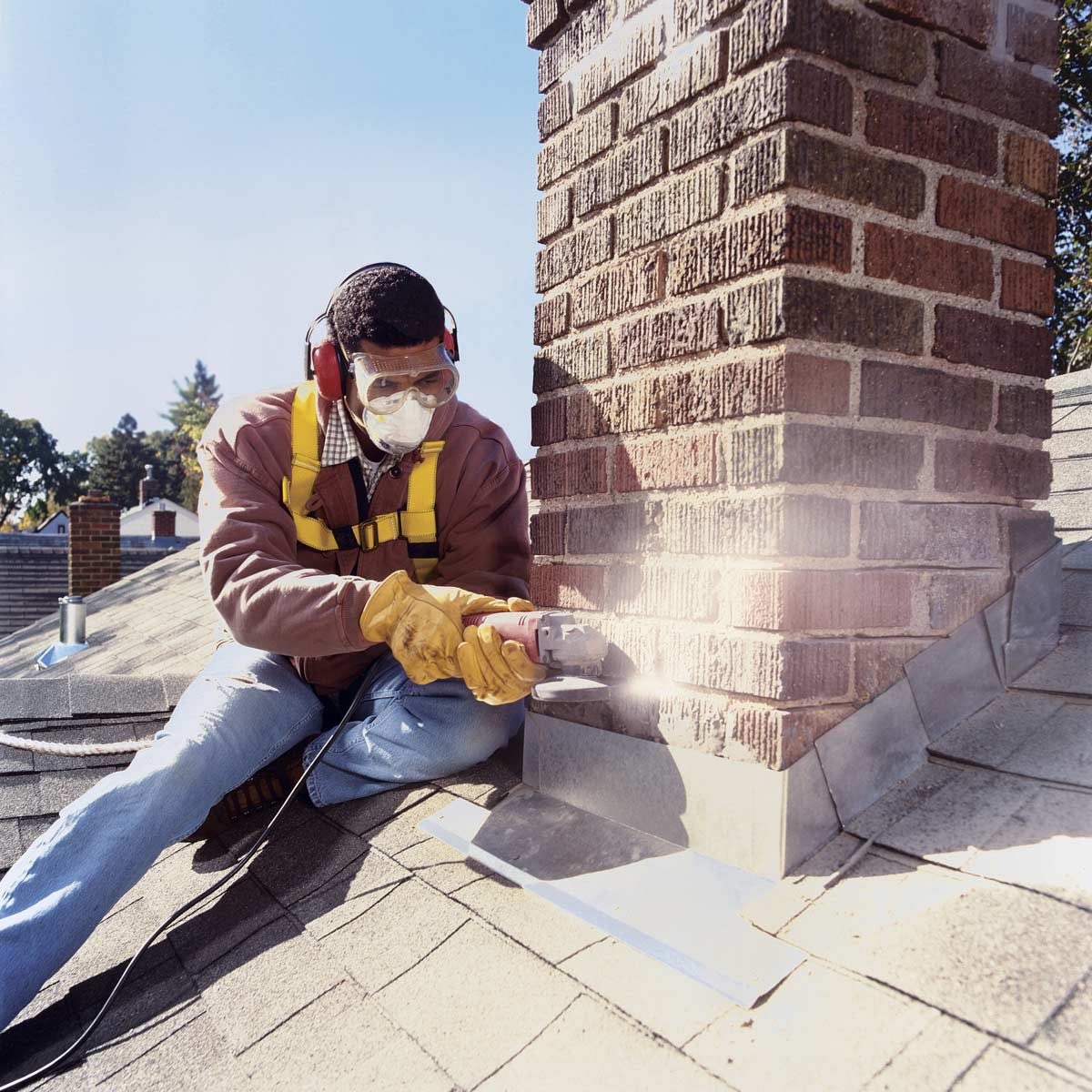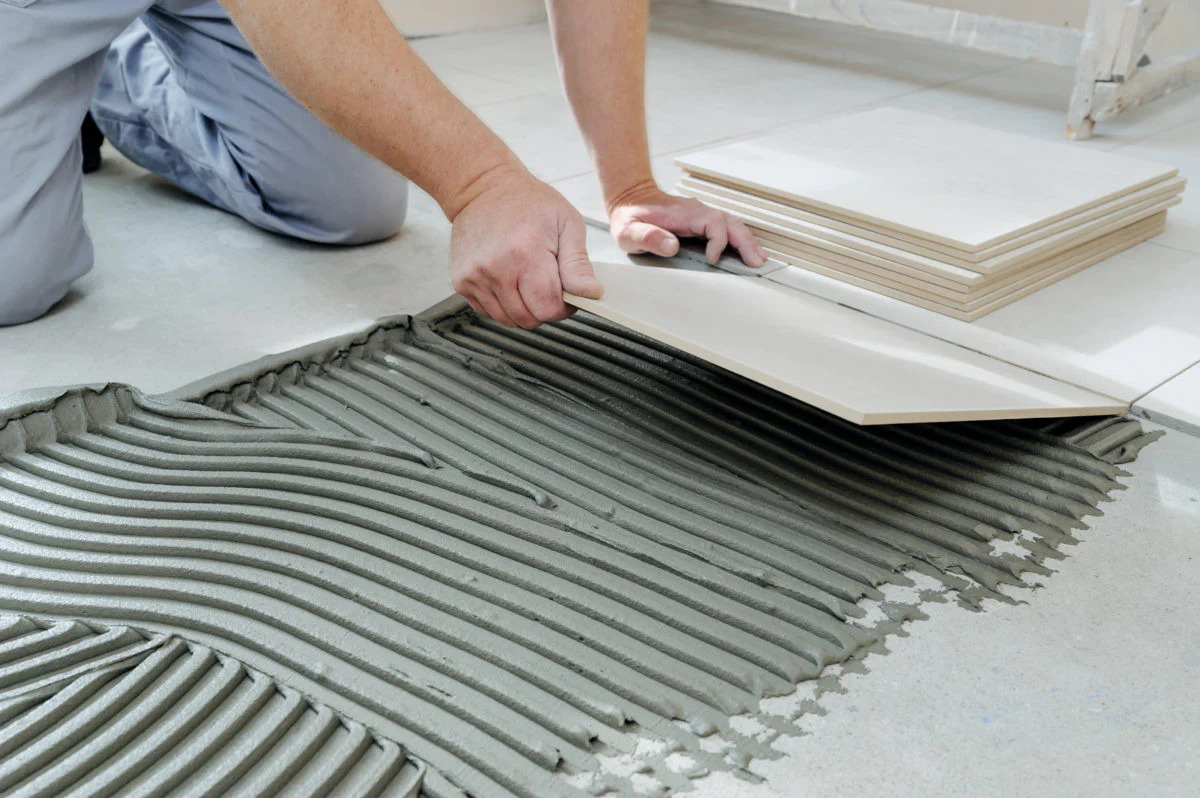Home>Home Maintenance>How Much Money To Set Aside For Home Repair
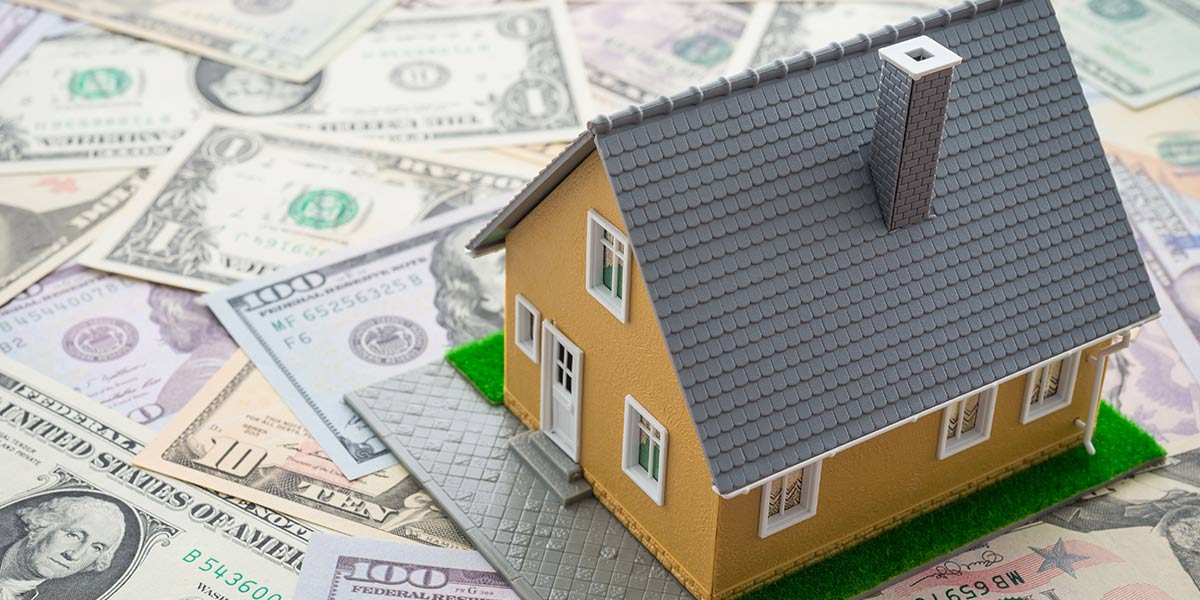

Home Maintenance
How Much Money To Set Aside For Home Repair
Modified: March 6, 2024
Discover how much you should budget for home repair and maintenance. Learn the essentials of setting aside money for unexpected expenses.
(Many of the links in this article redirect to a specific reviewed product. Your purchase of these products through affiliate links helps to generate commission for Storables.com, at no extra cost. Learn more)
Introduction
As a homeowner, it’s important to be prepared for the unexpected. Home repairs and maintenance are inevitable, and they can often come with a hefty price tag. Whether it’s a leaky roof, a malfunctioning HVAC system, or a plumbing issue, these unexpected expenses can put a significant dent in your budget.
That’s why it’s crucial to set aside money specifically for home repairs. Having a dedicated fund for these expenses will not only provide you with peace of mind but also ensure that you have the necessary funds to tackle any issues that may arise.
In this article, we will explore the importance of setting aside money for home repairs, factors to consider when estimating repair costs, tips for creating a home repair budget, and the benefits of having emergency repair funds. By implementing these strategies, you can safeguard yourself from financial stress and ensure the longevity of your home.
Key Takeaways:
- Setting aside money for home repairs provides financial security, peace of mind, and the ability to promptly address unexpected repair needs, ensuring the longevity and well-being of your home.
- By having a dedicated home repair fund, you can avoid high-interest debt, maintain your property’s condition, and increase its value, demonstrating responsibility as a homeowner.
Read more: Which Glassware Is Worth Money
Importance of Setting Aside Money for Home Repair
Setting aside money specifically for home repairs is crucial for several reasons. Firstly, it provides you with a financial safety net. By having funds readily available, you don’t have to scramble for money when an unexpected repair arises. This reduces stress and allows you to address the issue promptly without worrying about the financial burden.
Secondly, regular home maintenance and repairs help to maintain the value of your property. Neglecting or delaying repairs can lead to more significant issues down the line, which not only cost more to fix but can also decrease the value of your home. By setting aside money for timely repairs, you are protecting your investment and ensuring that your home remains in good condition.
Additionally, having a dedicated home repair fund gives you more control over your budget. Instead of relying on credit cards or loans to finance repairs, you can use your savings and avoid accruing high-interest debt. This allows you to maintain financial stability and avoid unnecessary interest payments.
Furthermore, having funds set aside for home repairs can help you plan and prioritize your projects effectively. It allows you to allocate funds for both routine maintenance tasks and unexpected repairs, ensuring that you can address all necessary issues in a timely manner. This proactive approach not only saves you from potential headaches but can also help you save money in the long run.
Lastly, setting aside money for home repairs instills a sense of responsibility in you as a homeowner. It demonstrates that you understand the importance of maintaining your property and are committed to taking care of it. This mindset is essential not only for your own peace of mind but also for potential future buyers if and when you decide to sell your home.
Overall, setting aside money for home repairs is a smart financial move that provides you with a safety net, protects the value of your property, gives you control over your budget, helps you plan effectively, and fosters a sense of responsibility as a homeowner. So, start saving today, and be prepared for whatever home repairs may come your way.
Factors to Consider
When setting aside money for home repairs, it’s important to consider various factors that can impact the amount you should save. These factors will help you estimate the potential costs of repairs and determine an appropriate budget. Here are some key factors to consider:
- Age of the Home: Older homes generally require more frequent repairs and maintenance compared to newer homes. Consider the age of your home and research common issues that homes of that age may face. This will give you an idea of the types of repairs you may need to budget for.
- Size of the Home: The size of your home can affect the cost of repairs. Larger homes typically have more systems and components that may require attention, such as HVAC systems, plumbing, or electrical. Take into account the square footage of your home when estimating repair costs.
- Location: The location of your home can impact the cost of repairs due to variations in labor costs and the types of issues commonly seen in that area. Areas prone to extreme weather conditions, for example, may require more frequent repairs related to roofing or insulation.
- Maintenance History: Consider the maintenance history of your home. Regularly maintained homes may have fewer surprises and costly repairs, while neglected homes may have hidden issues that need immediate attention. If you purchased a new home, warranty coverage may also affect your repair budget.
- Quality of Construction: The quality of the original construction and materials used in your home can impact repair costs. Homes built with lower-quality materials may require more frequent repairs as those materials wear out or degrade over time.
- Reserve Study or Home Inspection: Consider conducting a reserve study or hiring a professional home inspector to assess the condition of your property. These evaluations will give you a detailed understanding of any potential issues and help you determine an appropriate budget for necessary repairs.
By carefully considering these factors, you will be able to estimate the potential costs of repairs and create a realistic budget. Keep in mind that these factors are not exhaustive and that individual circumstances may vary. It’s always best to consult with professionals and experts in home repair to get a more accurate idea of the costs specific to your situation.
Estimating the Cost of Home Repairs
Estimating the cost of home repairs can be a challenging task, as it requires considering various factors and obtaining accurate information. However, having a general idea of the potential costs can help you plan and budget effectively. Here are some steps to help you estimate the cost of home repairs:
- Research and Gather Information: Take some time to research common repair projects and their associated costs. Online resources, contractor websites, and home improvement guides can provide valuable insights into the average prices for different types of repairs in your area.
- Get Multiple Quotes: When planning for a major repair or renovation project, it’s advisable to obtain multiple quotes from licensed contractors or professionals. This will give you a range of estimates to work with and ensure that you are getting a fair price for the work.
- Consider Materials and Labor Costs: Factor in the costs of materials and labor. Depending on the repair, material costs can vary significantly, and labor costs can also differ based on the complexity of the project and the rates charged by contractors in your area.
- Think About Permit and Inspection Fees: Some repairs, particularly major ones, may require permits and inspections. These additional costs should be factored into your estimate. Check with local building departments to understand the permit and inspection requirements and associated fees.
- Account for Hidden or Potential Issues: It’s essential to consider the possibility of hidden or potential issues that may arise during the repair process. For example, in a roofing project, the contractor may discover additional structural damage that needs to be addressed, adding to the overall cost. Leave room in your budget for these unexpected expenses.
- Consult with Professionals: If you’re unsure about the scope and cost of a particular repair, consult with professionals in that field. Contractors, plumbers, electricians, or other experts can provide valuable insights and help you make more accurate cost estimates.
Keep in mind that cost estimates can vary depending on your location, the specific project, and other factors such as the quality of materials you choose. It’s always a good idea to have a contingency fund for unexpected expenses and to be prepared for potential fluctuations in material and labor costs.
By following these steps and gathering as much information as possible, you can create a more accurate estimate of the costs involved in your home repair projects. This will help you budget effectively and ensure that you have the necessary funds available to tackle any repairs that may arise.
Creating a Home Repair Budget
Creating a home repair budget is an essential step in managing your finances and ensuring that you have enough funds set aside for necessary repairs. By following these steps, you can create a realistic budget that will help you stay on track:
- Evaluate Your Home’s Needs: Start by assessing your home’s current condition and identifying any repair or maintenance needs. Create a list of necessary repairs, prioritizing them based on urgency and importance.
- Research Costs: Research the costs of the repairs you have identified. Reach out to local contractors for estimates or use online resources to get an idea of the average costs for similar projects in your area.
- Set a Realistic Budget: Based on the estimated costs, set a realistic budget for your home repairs. Be sure to consider your financial situation and your ability to comfortably allocate funds for these expenses.
- Allocate Funds Regularly: Determine how much money you can set aside for home repairs each month or quarter. Create a separate savings account specifically for home repairs and commit to depositing a designated amount regularly.
- Consider Long-Term Repairs: Take into account any long-term repairs or renovations that you may need to address in the future. Plan your budget accordingly, setting aside additional funds for these larger, more costly projects.
- Review and Adjust: Regularly review your budget and make adjustments as needed. Priorities can change over time, so you may need to reallocate funds or adjust your savings goals periodically.
- Track Expenses: Keep track of your home repair expenses to ensure that you are staying within your budget. Consider using a spreadsheet or a budgeting app to monitor your expenses and track your progress towards your savings goals.
- Explore Cost-Saving Measures: Look for ways to save money on home repairs without compromising quality. Shop around for competitive prices, consider DIY options for smaller tasks if you have the necessary skills, and explore energy-efficient options that can save you money in the long run.
- Don’t Forget Emergency Fund: In addition to your regular home repair budget, it’s crucial to have an emergency fund set aside. This fund will help cover any unexpected major repairs or disasters that may occur.
Remember, creating a home repair budget is an ongoing process. As repairs arise and circumstances change, you may need to adjust your budget accordingly. By being proactive and budget-conscious, you can ensure that you have the necessary funds available to maintain and improve your home without derailing your overall financial goals.
It’s recommended to set aside 1-3% of your home’s value for annual maintenance and repairs. For older homes, consider setting aside more.
Read more: How To Save Money On Home Renovation
Tips for Saving Money on Home Repairs
Home repairs can be costly, but there are several strategies you can implement to save money without compromising on quality. Here are some tips to help you save money on your home repair projects:
- Do Your Research: Before starting any repair project, research and gather multiple quotes from different contractors. Compare prices, services offered, and reviews to ensure you are getting the best value for your money.
- Consider DIY Options: For simpler tasks that are within your skill set, consider doing the repairs yourself. This can save you money on labor costs. However, be honest with yourself about your abilities and only take on projects you are confident you can handle.
- Shop Around for Materials: Don’t settle for the first price you find. Shop around and compare prices for materials. Look for sales, discounts, or bulk-buying options to save money without compromising on quality.
- Reuse and Repurpose: Before purchasing new materials, consider if there are any items you can reuse or repurpose from other areas of your home or from previous projects. Salvaging materials can significantly reduce costs.
- Take Advantage of Manufacturer Warranties: If the repair involves a specific component or appliance with an active manufacturer warranty, check if the necessary repairs or replacements are covered. Utilizing warranties can save you money on parts and labor.
- Do Regular Maintenance: Implement a regular maintenance schedule to prevent major repairs. Simple tasks like cleaning gutters, changing air filters, and sealing cracks can help avoid costly issues down the line.
- Combine Projects: If you have multiple repairs or renovations planned, try to bundle them together. This can help you negotiate a better deal with contractors and potentially save on labor costs.
- Consider Energy-Efficient Options: Energy-efficient upgrades can not only save you money on utility bills but also qualify for tax credits or rebates. Look into energy-efficient appliances and systems that can help you save in the long run.
- Get Multiple Opinions: If a contractor suggests an expensive repair, don’t hesitate to seek a second or even third opinion. Different contractors may have different approaches and price quotes, giving you more options to consider.
- Prevent Future Repairs: Invest in preventive measures to avoid future repairs. For example, regular pest control can help prevent costly infestations, and proper insulation can reduce energy costs and potential damage.
By implementing these money-saving tips, you can reduce the financial burden of home repairs without compromising on the quality or longevity of the work. With a little research, resourcefulness, and proactive planning, you can keep your home in excellent condition while keeping your wallet happy.
Common Home Repair Expenses
Home repairs come in all shapes and sizes, but certain issues tend to be more common than others. Being aware of these common home repair expenses can help you better prepare your budget and address potential issues promptly. Here are some of the most common home repair expenses:
- Plumbing Repairs: Plumbing issues, such as leaks, clogged drains, or faulty fixtures, are common repair needs for homeowners. These repairs can range from minor fixes to major pipe replacements, depending on the severity of the issue.
- Electrical Repairs: Faulty wiring, flickering lights, or malfunctioning outlets may require the expertise of an electrician. Electrical repairs are essential for maintaining the safety and functionality of your home’s electrical system.
- Roof Repairs: A leaky or damaged roof can lead to significant issues, such as water damage and mold growth. Repairing or replacing a roof can be a costly but necessary expense to protect your home from further damage.
- HVAC Repairs: Heating, ventilation, and air conditioning (HVAC) systems require regular maintenance and occasional repairs to ensure optimal performance. Issues with HVAC systems can affect the comfort and energy efficiency of your home.
- Foundation Repairs: Foundation problems, such as cracks or settlement issues, can compromise the structural integrity of your home. Repairing foundation issues is a crucial expense to prevent further damage and maintain the stability of your property.
- Window or Door Replacements: Aging or damaged windows and doors may need to be replaced to improve energy efficiency, enhance security, or update the appearance of your home. These replacements can be costly but can also provide long-term benefits.
- Appliance Repairs: Appliances such as refrigerators, dishwashers, or washing machines may require repairs or part replacements over time. Keeping these appliances in good working condition is important for your daily convenience.
- Painting and Surface Repairs: Over time, walls, ceilings, and other surfaces can become damaged or require repainting. These cosmetic repairs not only enhance the look of your home but also protect it from further wear and tear.
- Gutters and Downspouts: Cleaning or repairing gutters and downspouts is essential for proper water drainage. Neglected gutters can lead to water damage, foundation issues, or basement flooding if not addressed promptly.
- Deck or Fence Repairs: Outdoor structures such as decks or fences may require repairs or maintenance due to weathering, rotting, or general wear and tear. Ensuring the safety and functionality of these structures is important for enjoying your outdoor space.
These are just a few examples of common home repair expenses. Remember that every home is unique and may have specific repair needs based on its age, location, and maintenance history. By recognizing these common expenses and being prepared, you can effectively manage your home repair budget and address issues as they arise. Regular maintenance and proactive monitoring can help prevent significant repair costs down the line, saving you time, money, and potential headaches.
Emergency Home Repair Funds
Despite proactive maintenance and careful budgeting, unexpected home repairs can still occur. For such unforeseen events, it is crucial to have emergency home repair funds set aside. These funds act as a financial safety net to cover sudden and urgent repair expenses. Here’s everything you need to know about emergency home repair funds:
1. Set a Target Amount: Determine an ideal target amount for your emergency home repair fund. It should be based on factors such as the age of your home, the likelihood of major repairs, and your risk tolerance. Aim for at least 1% to 3% of your home’s value.
2. Establish a Separate Account: Open a separate savings account specifically for your emergency repair fund. This will help you keep track of the funds and prevent them from being mixed with your regular savings.
3. Contribute Regularly: Make regular contributions to your emergency fund. This can be done monthly, quarterly, or as per your financial situation. Consistency is key to gradually building up the necessary funds.
4. Keep Fund Liquid: Ensure that your emergency home repair funds are easily accessible. Avoid tying up the funds in long-term investments or assets that are difficult to liquidate. You should be able to access the money quickly in case of an emergency.
5. Do not Borrow from the Fund: Resist the temptation to borrow from your emergency home repair fund for non-essential expenses. It should be strictly reserved for emergency repairs to maintain the integrity and reliability of the fund.
6. Replenish the Fund: If you have to use the funds for a repair, make it a priority to replenish the amount as soon as possible. Maintain your regular contributions to ensure that the fund is always ready for future emergencies.
7. Be Prepared for Larger Repairs: Major repairs, such as a roof replacement or HVAC system failure, can be expensive. Consider adjusting your savings goals to accommodate the potential costs of these larger repairs in your emergency fund.
8. Insurance Coverage: Review your homeowner’s insurance policy to understand what is covered and what is not. Certain repairs may be eligible for insurance claims, in which case the emergency fund can act as a deductible or cover expenses not covered by insurance.
9. Prioritize Urgent Repairs: Assess the urgency of repairs and prioritize them accordingly. Some repairs may require immediate attention to prevent further damage or safety risks. Having an emergency fund readily available allows you to address such urgent repairs promptly.
10. Plan Regular Maintenance: While the emergency fund is essential, prevention is always better than a cure. Implement a regular maintenance schedule and address minor issues promptly to minimize the need for major emergency repairs.
Having an emergency home repair fund provides you with peace of mind and financial security. By following these guidelines and consistently contributing to the fund, you can effectively handle unexpected home repair expenses without straining your budget or resorting to high-interest financing options.
Benefits of Setting Aside Money for Home Repair
Setting aside money specifically for home repairs offers numerous benefits that go beyond just financial preparedness. Here are the key advantages of having a dedicated fund for home repairs:
1. Financial Security: One of the primary benefits of setting aside money for home repairs is the assurance of financial security. With a dedicated fund, you are prepared for unexpected repair expenses without the stress of figuring out how to pay for them. It provides a safety net for emergencies and eliminates the need to rely on credit cards or loans.
2. Prompt Repairs and Maintenance: By having funds readily available, you can address home repairs and maintenance needs promptly. Timely repairs prevent the worsening of issues, saving you from more extensive and costly repairs down the line. Regular maintenance ensures that your home remains in good condition, protecting its value and extending its lifespan.
3. Budgeting Control: Setting aside money for home repairs gives you greater control over your budget. Instead of having to scramble for funds when a repair arises, you can plan your expenses ahead of time. It enables you to allocate the necessary funds without disrupting your overall financial goals, making it easier to stay on top of your budget.
4. Avoiding High-Interest Debt: Having a dedicated home repair fund helps you avoid accumulating high-interest debt. By using the funds you’ve set aside, you can avoid relying on credit cards or loans to cover repair expenses. This saves you from paying unnecessary interest charges and helps maintain your financial stability.
5. Peace of Mind: Knowing that you have funds set aside for home repairs brings peace of mind. Homeownership comes with its share of uncertainties, but having financial preparedness alleviates the stress and anxiety that can come with unexpected repairs. It allows you to focus on enjoying your home rather than worrying about potential costly surprises.
6. Increased Home Value: Regular repairs and maintenance help maintain or even increase the value of your home. By promptly addressing issues and ensuring the functionality and aesthetics of your property, you can preserve its worth. In the long run, this can be beneficial if you decide to sell your home.
7. Sense of Responsibility: Setting aside money for home repairs demonstrates your responsibility as a homeowner. It shows that you understand the importance of taking care of your property and maintaining its condition. This mindset not only benefits you personally but also creates a positive perception if and when you decide to sell your home.
8. Flexibility in Choosing Contractors: Having funds readily available for home repairs gives you the flexibility to choose the right contractor for the job. You can take the time to research and get multiple quotes, ensuring that you find a reputable professional who offers fair pricing and quality workmanship.
Overall, setting aside money for home repairs offers financial security, control over your budget, peace of mind, increased home value, and a sense of responsibility. It allows you to promptly address repairs, avoid high-interest debt, and maintain your property’s condition. By establishing a dedicated fund, you are investing in the longevity and well-being of your home.
Read more: How To Get Money For Home Improvement
Conclusion
Setting aside money specifically for home repairs is a wise and proactive approach to homeownership. By creating a dedicated fund, you provide yourself with financial security, peace of mind, and the ability to promptly address unexpected repair needs. The benefits of having a home repair fund extend beyond just monetary preparedness.
When unexpected repairs arise, having funds readily available allows you to tackle the issue promptly, preventing further damage and costly repairs down the line. It also gives you the flexibility to choose the right contractor for the job without feeling rushed or constrained by financial constraints.
In addition to the practical benefits, setting aside money for home repairs demonstrates your responsibility as a homeowner. It shows that you understand the importance of maintaining your property and ensuring its longevity. This mindset can positively impact your home’s value and create a favorable impression if and when you decide to sell your home.
Remember, estimating the cost of repairs, creating a realistic budget, and regularly contributing to your home repair fund are crucial steps in being prepared. It’s also important to explore ways to save money on repairs, such as researching contractors, considering DIY options, and shopping around for materials.
By investing in regular maintenance, proactive monitoring, and a dedicated home repair fund, you are taking control of your homeowner journey. You’ll have the peace of mind to enjoy your home, knowing that unexpected repairs won’t derail your financial stability or cause unnecessary stress.
So, start setting aside money for home repairs today. Prioritize your budget, plan for the unexpected, and ensure that your home remains in the best possible condition. With financial preparedness and a proactive mindset, you can navigate the ups and downs of homeownership with confidence.
Frequently Asked Questions about How Much Money To Set Aside For Home Repair
Was this page helpful?
At Storables.com, we guarantee accurate and reliable information. Our content, validated by Expert Board Contributors, is crafted following stringent Editorial Policies. We're committed to providing you with well-researched, expert-backed insights for all your informational needs.


